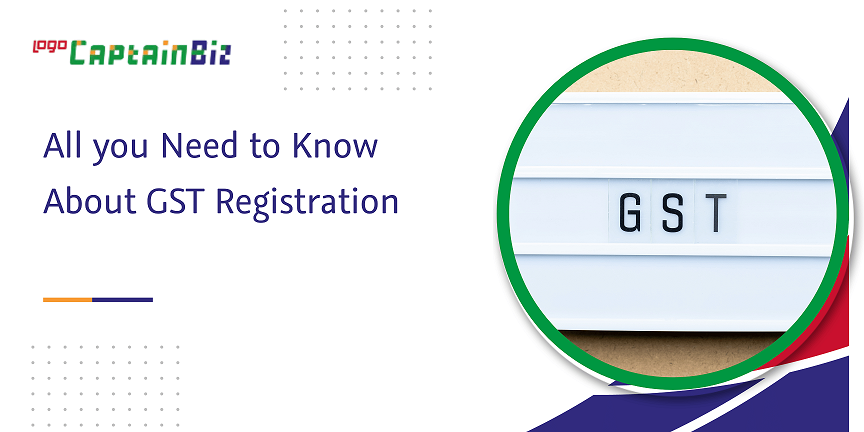From Beginning To End: An Extensive Review of GST Registration and How to Efficiently Register Your Company
Browsing through the complex procedure of GST enrollment can be an important action for any type of organization wanting to develop compliance and authenticity in the market. Why choose CFO Account & Services for GST registration in Singapore. From comprehending the basic concepts of GST to fulfilling the eligibility criteria and collecting the required documents, the journey towards successful registration can often appear like a difficult job. With the appropriate assistance and insights, services can improve this process and unlock the advantages that come with being a signed up entity.
Recognizing GST and Its Importance
Comprehending the Goods and Solutions Tax Obligation (GST) and its relevance is essential for services running in economic situations where this taxes system is carried out. By enabling businesses to assert input tax obligation debts on the tax paid on acquisitions, GST makes sure that taxes are determined just on the value included at each stage of the supply chain.
In addition, GST advertises compliance and openness in the tax obligation regime, lowering tax evasion and raising government income. It streamlines tax obligation management and compliance for organizations by supplying an usual system for tax filing and repayment. Generally, a comprehensive understanding of GST is crucial for organizations to effectively browse the complexities of the tax system and guarantee conformity with the regulation.
Eligibility Requirements for GST Enrollment
To sign up for GST, companies have to meet certain qualification criteria laid out by the tax authorities. The key need for GST enrollment is that business's aggregate turnover surpasses the limit established by the government, which differs by state. As of the existing guidelines, organizations with an annual turnover of Rs. 40 lakhs or more in most states have to register for GST. For businesses operating in uneven regions and northeastern states, the limit is Rs. 20 lakhs. Furthermore, particular organizations, such as those associated with inter-state supply of goods or solutions, laid-back taxable persons, and non-resident taxed individuals, are called for to sign up for GST no matter of their turn over.
Moreover, businesses involved in supplying goods or services through shopping platforms are also mandated to sign up for GST, regardless of their turn over. Additionally, companies that were signed up under the previous tax obligation program, such as VAT, import tax task, or service tax, need to shift their registration to GST. Sticking to these eligibility criteria is essential for businesses looking for to comply with the GST laws and prevent any fines for non-compliance.
Papers Needed for GST Registration
When requesting GST registration, businesses should guarantee they have all the needed papers in order to complete the process efficiently and efficiently. The crucial records required for GST enrollment include evidence of service registration or unification such as the Certificate of Consolidation, collaboration action, or enrollment certificate. Furthermore, businesses need to supply evidence of address for the principal location of organization, which can be supported by papers like an utility bill or a rental contract.
In addition, documents verifying the identification and address of the marketers or companions involved in business, such as PAN card, Aadhaar card, or ticket, are crucial for GST registration. Bank account statements or canceled cheques presenting the name of the company, account, and address number are also compulsory to validate the financial institution account information supplied throughout registration.
Ensuring all the required papers remain in order and easily available will simplify the GST registration procedure and assistance services prevent delays or problems.
Online Enrollment Refine for GST

After completing the kind, supporting records require to be uploaded according to the guidelines supplied. go to this website These documents commonly check out here consist of evidence of business registration, address proof, financial institution statements, and identification evidence of business owner. It is vital to make sure that all files are clear, legitimate, and uploaded in the specified layout to avoid hold-ups in the enrollment process.
Once the application and documents are submitted, organizations can track the status of their GST enrollment online. If there are no concerns or additional info required, the GST registration certification will certainly be issued digitally, noting the successful conclusion of the online registration process.
Post-Registration Conformity and Tips

Businesses ought to stay upgraded on any adjustments in GST policies, prices, or compliance treatments to make necessary modifications without delay. Looking for specialist support from tax obligation specialists or accounting professionals can also assist services browse complex GST conformity needs efficiently.
Verdict
In conclusion, the procedure why not find out more of GST registration is crucial for companies to abide by tax obligation regulations and operate lawfully. By understanding the qualification standards, gathering the essential documents, and completing the on the internet enrollment process, companies can efficiently sign up for GST. It is essential to stay compliant with post-registration demands and look for specialist advice when needed to guarantee smooth operations.
Companies that were registered under the previous tax routine, such as Barrel, import tax task, or service tax, should transition their registration to GST. The essential files required for GST registration include evidence of organization enrollment or unification such as the Certification of Unification, partnership action, or registration certificate.Upon successful completion of the GST enrollment procedure, services have to promptly stick to post-registration conformity demands to preserve regulatory compliance and ensure smooth procedures.In conclusion, the procedure of GST enrollment is essential for organizations to abide with tax regulations and run legitimately. By comprehending the eligibility criteria, collecting the necessary documents, and finishing the on the internet registration procedure, businesses can efficiently sign up for GST.